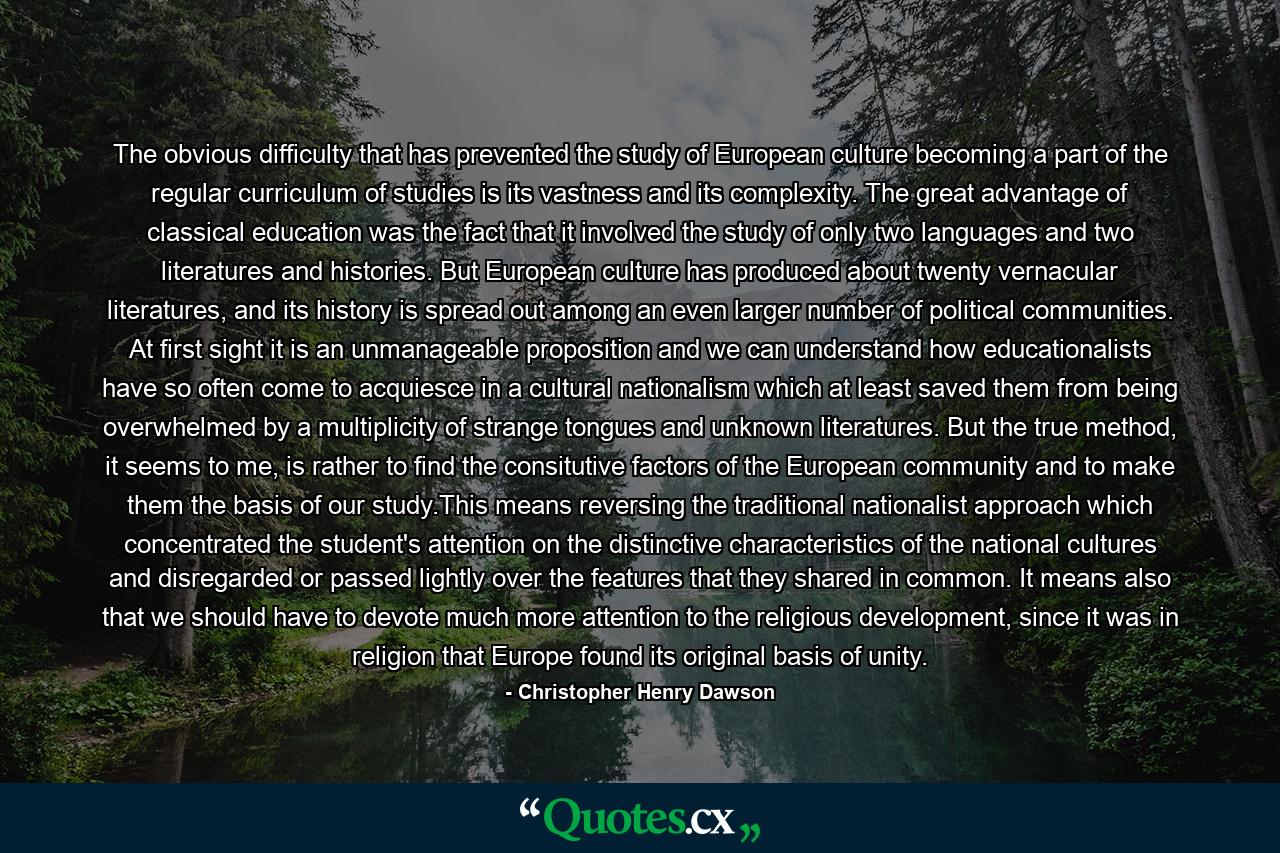The obvious difficulty that has prevented the study of European culture becoming a part of the regular curriculum of studies is its vastness and its complexity. The great advantage of classical education was the fact that it involved the study of only two languages and two literatures and histories. But European culture has produced about twenty vernacular literatures, and its history is spread out among an even larger number of political communities. At first sight it is an unmanageable proposition and we can understand how educationalists have so often come to acquiesce in a cultural nationalism which at least saved them from being overwhelmed by a multiplicity of strange tongues and unknown literatures. But the true method, it seems to me, is rather to find the consitutive factors of the European community and to make them the basis of our study.This means reversing the traditional nationalist approach which concentrated the student’s attention on the distinctive characteristics of the national cultures and disregarded or passed lightly over the features that they shared in common. It means also that we should have to devote much more attention to the religious development, since it was in religion that Europe found its original basis of unity.
